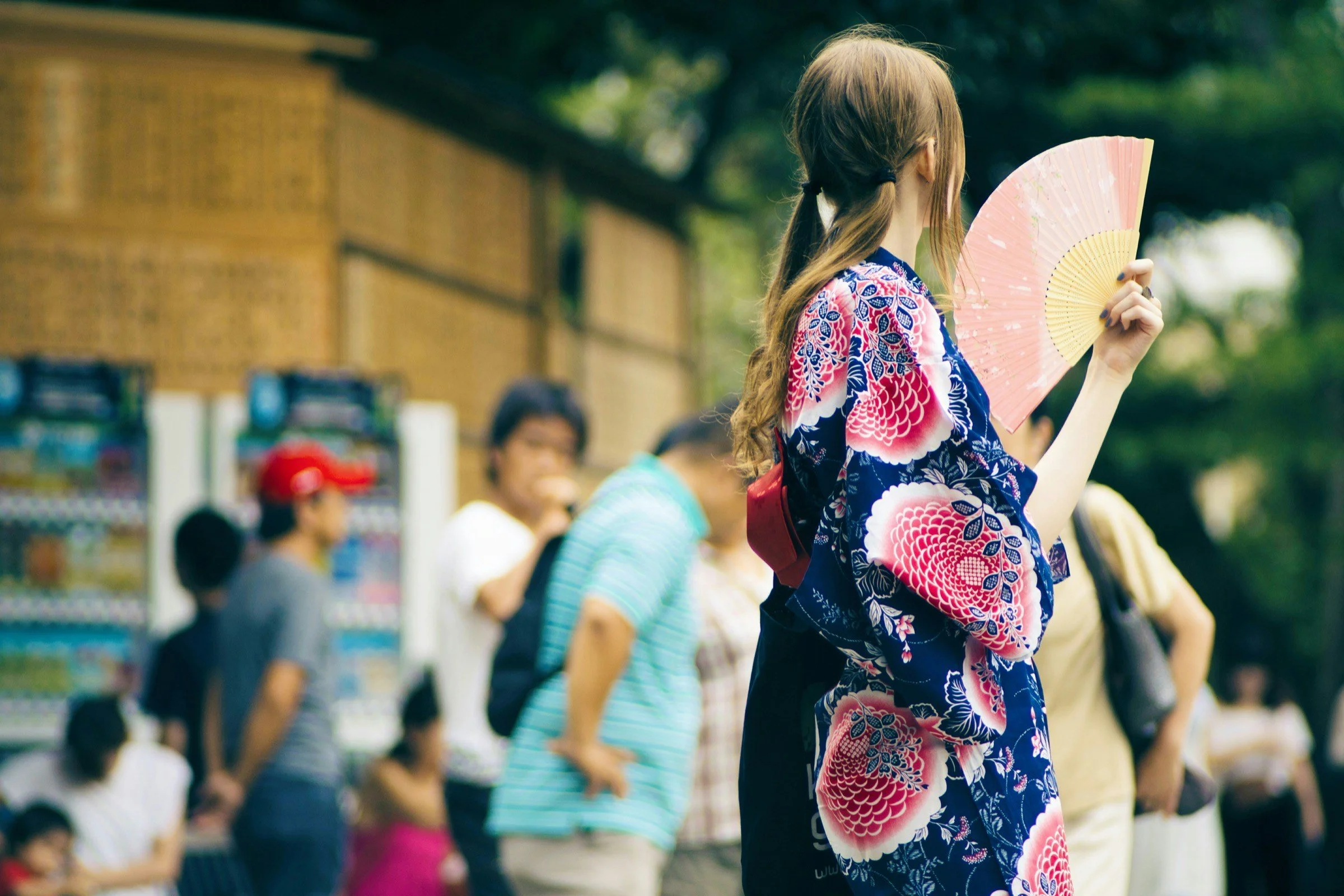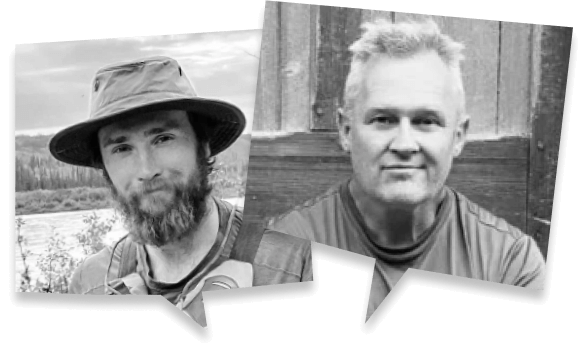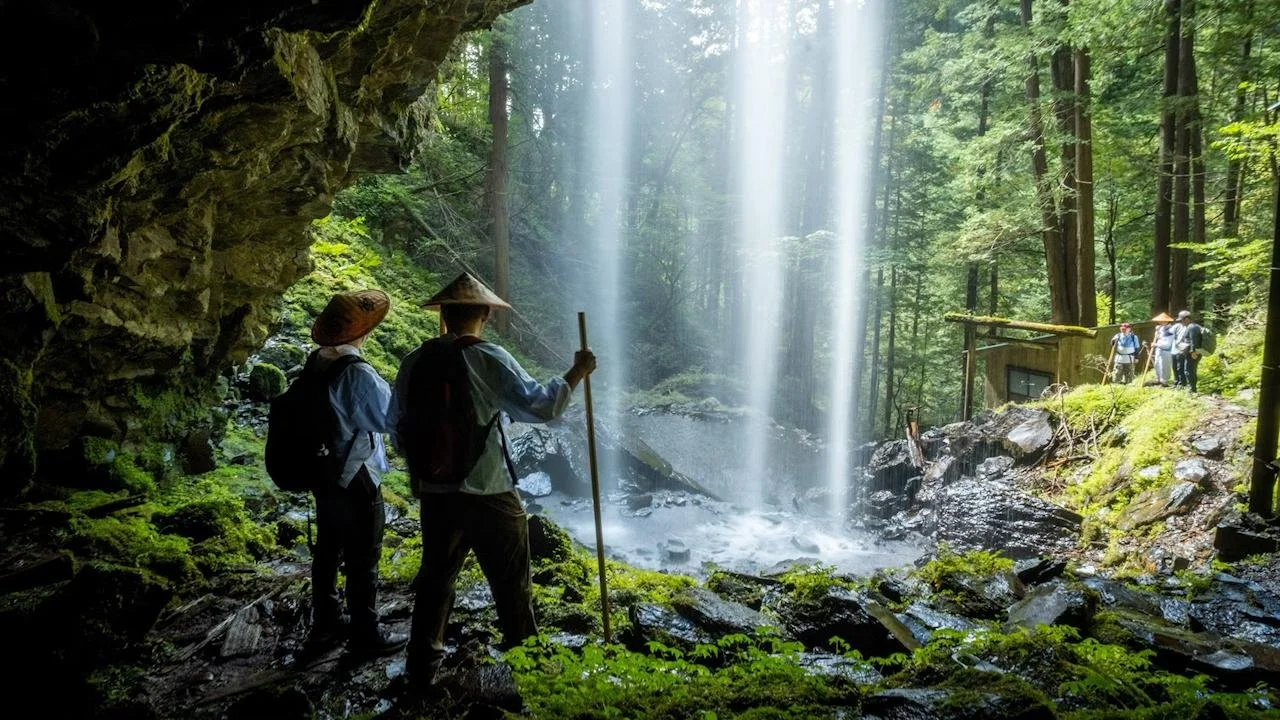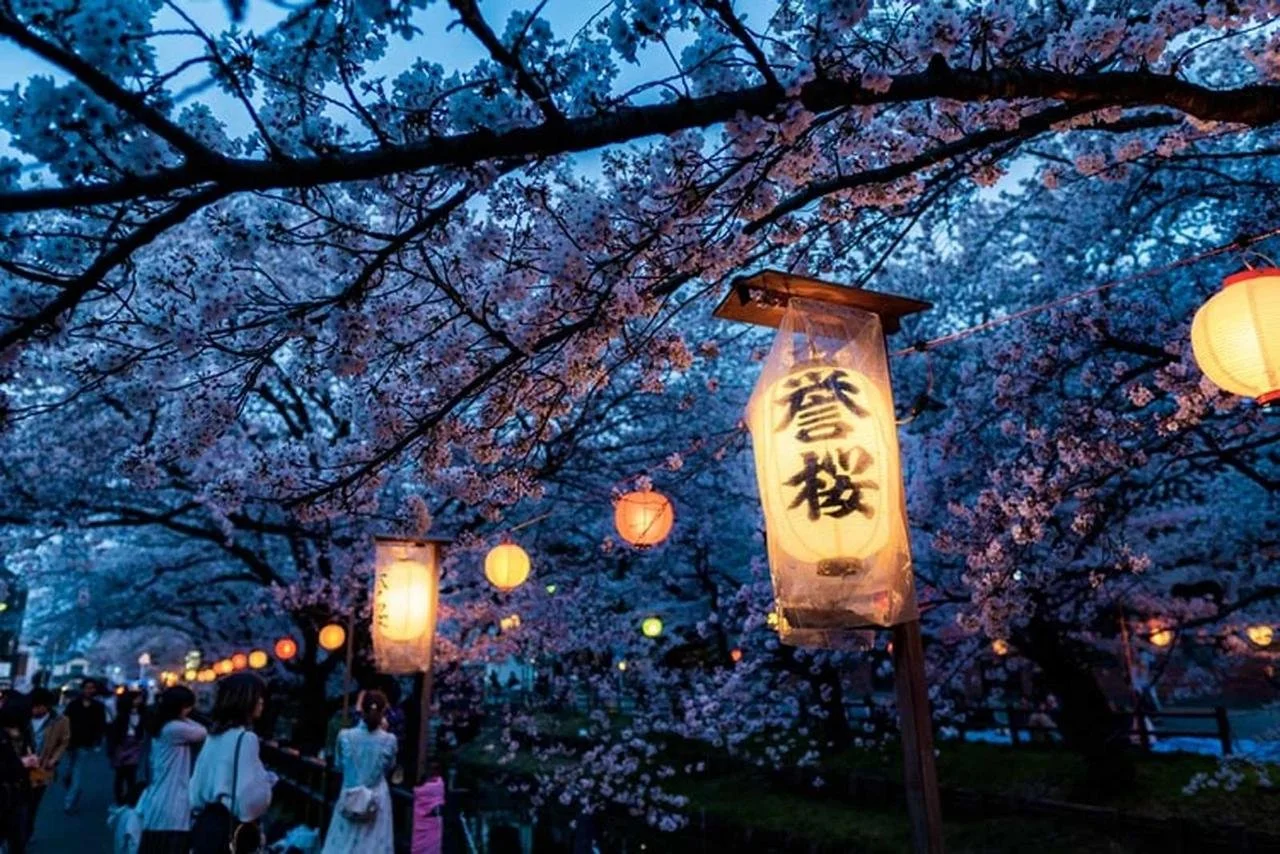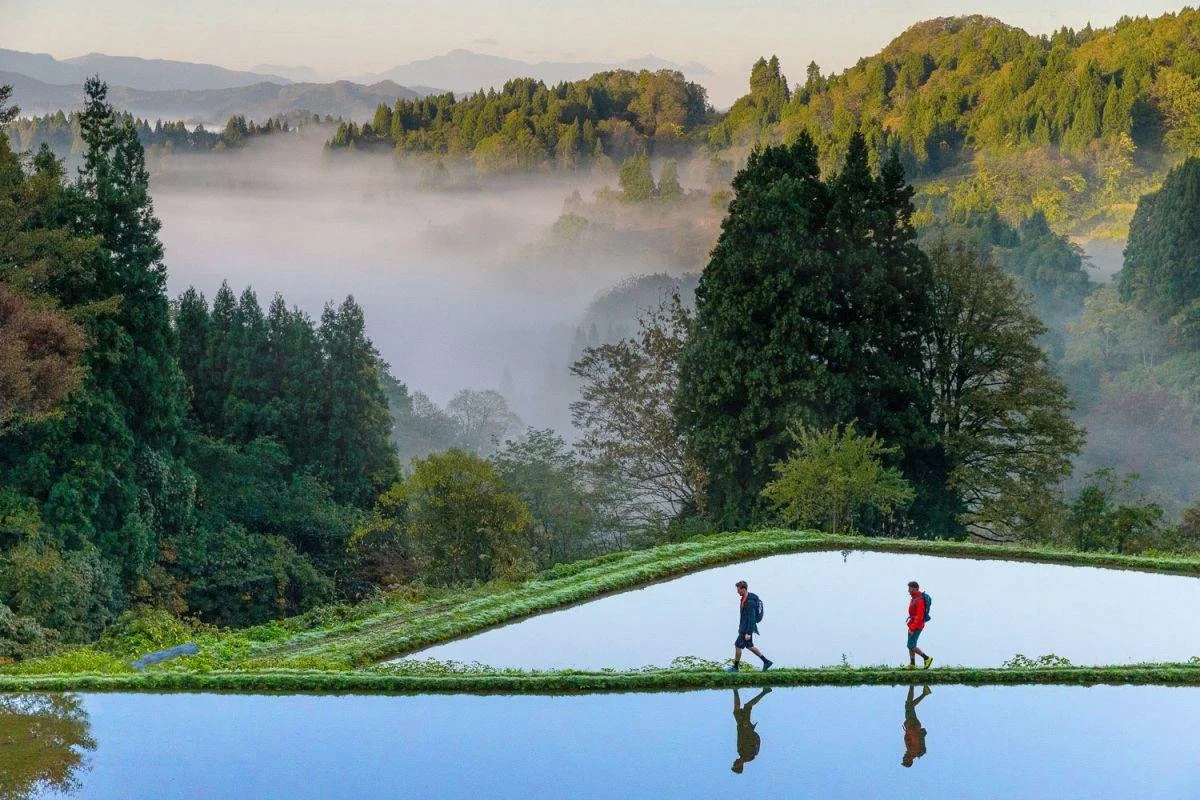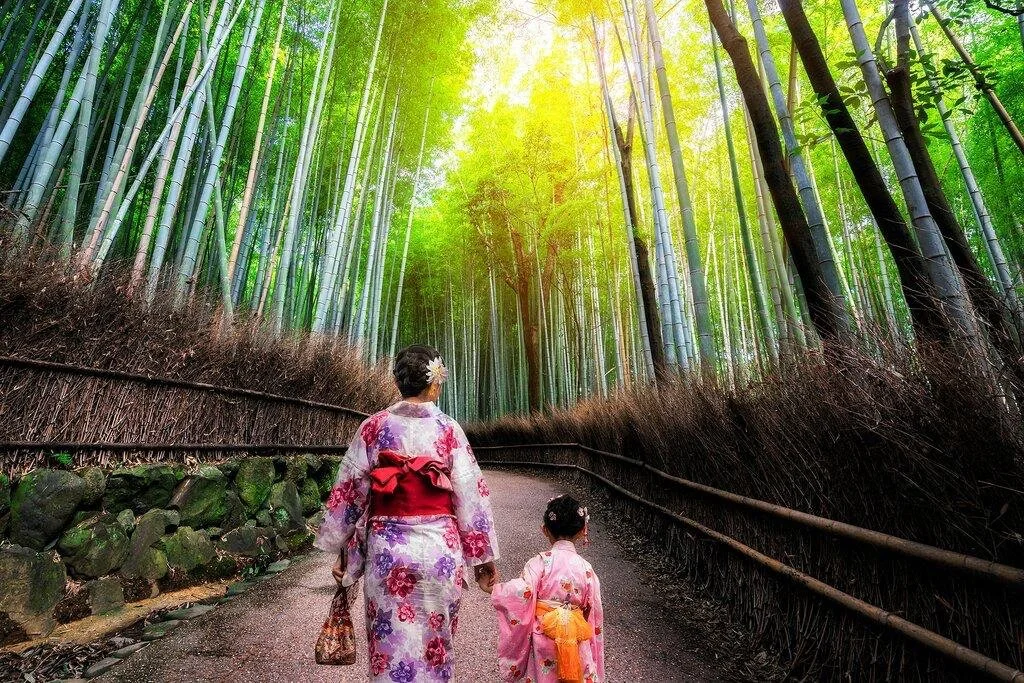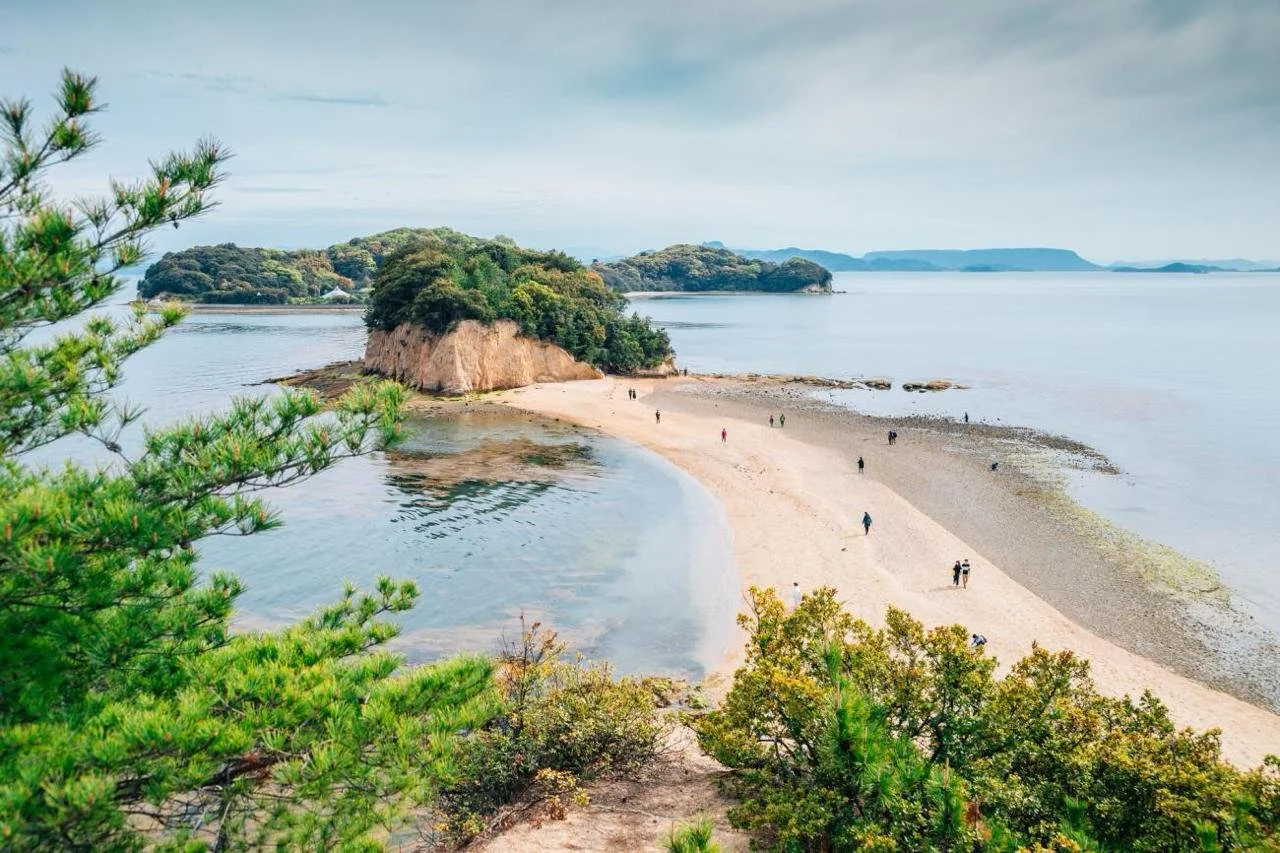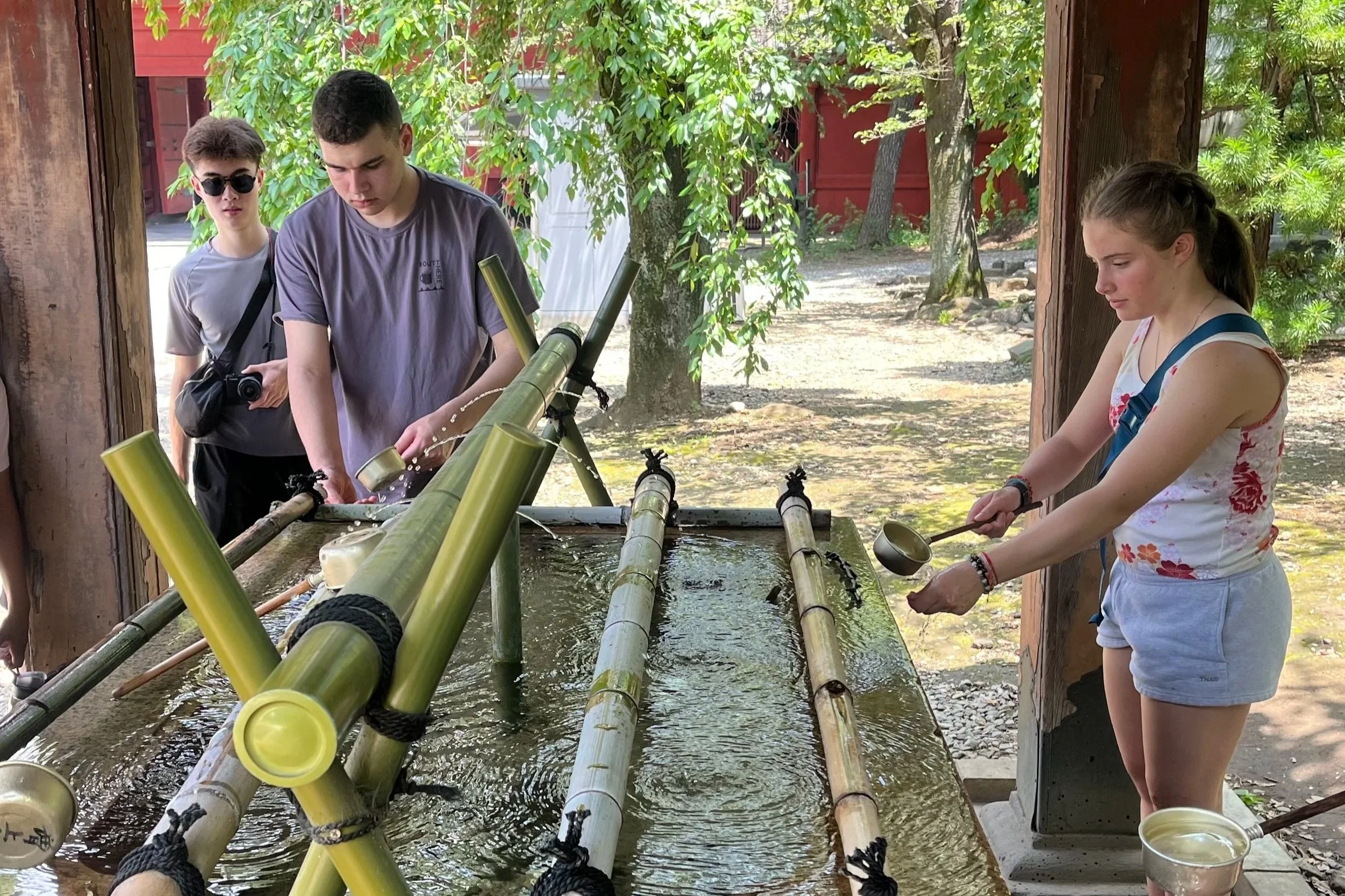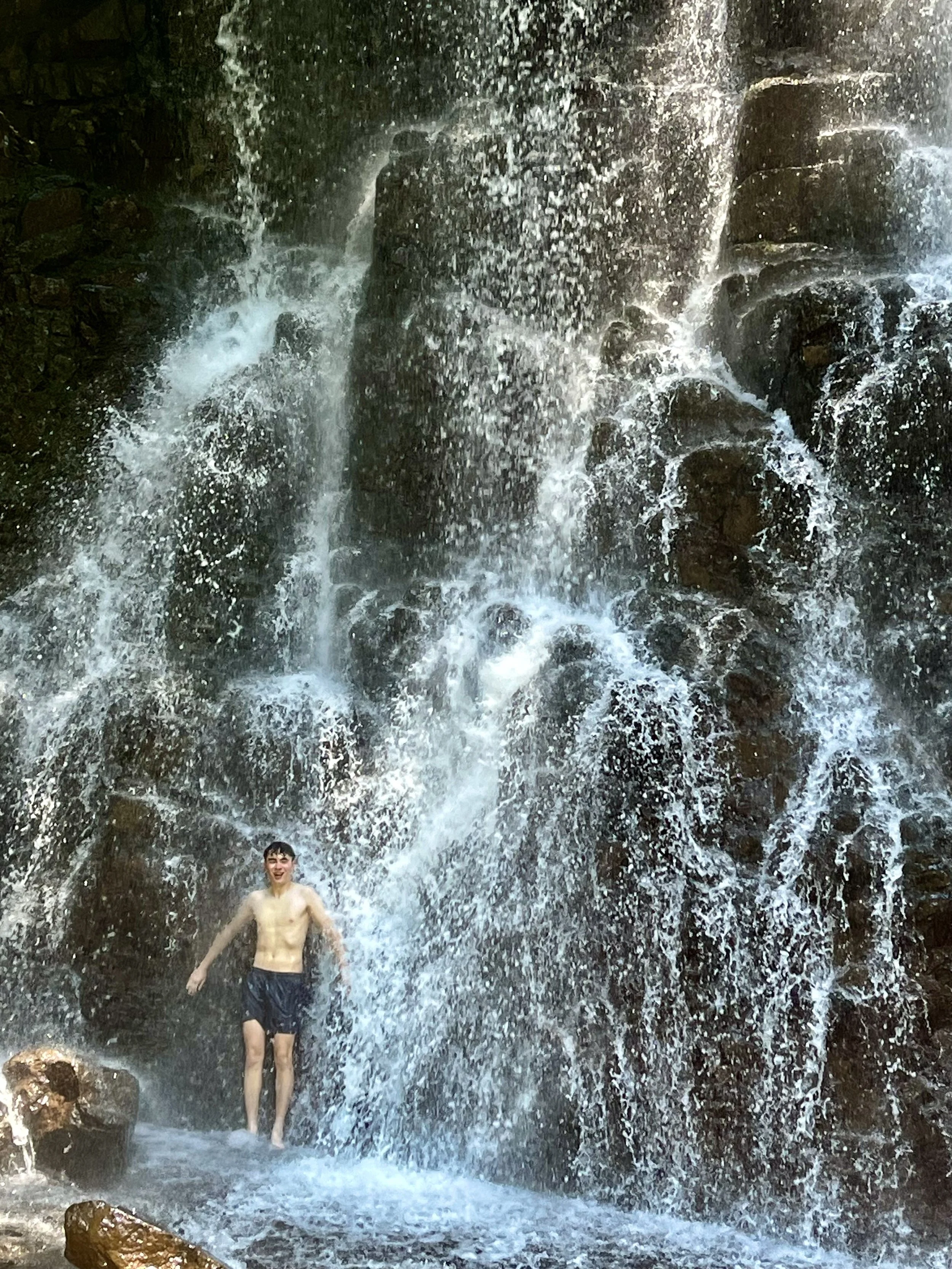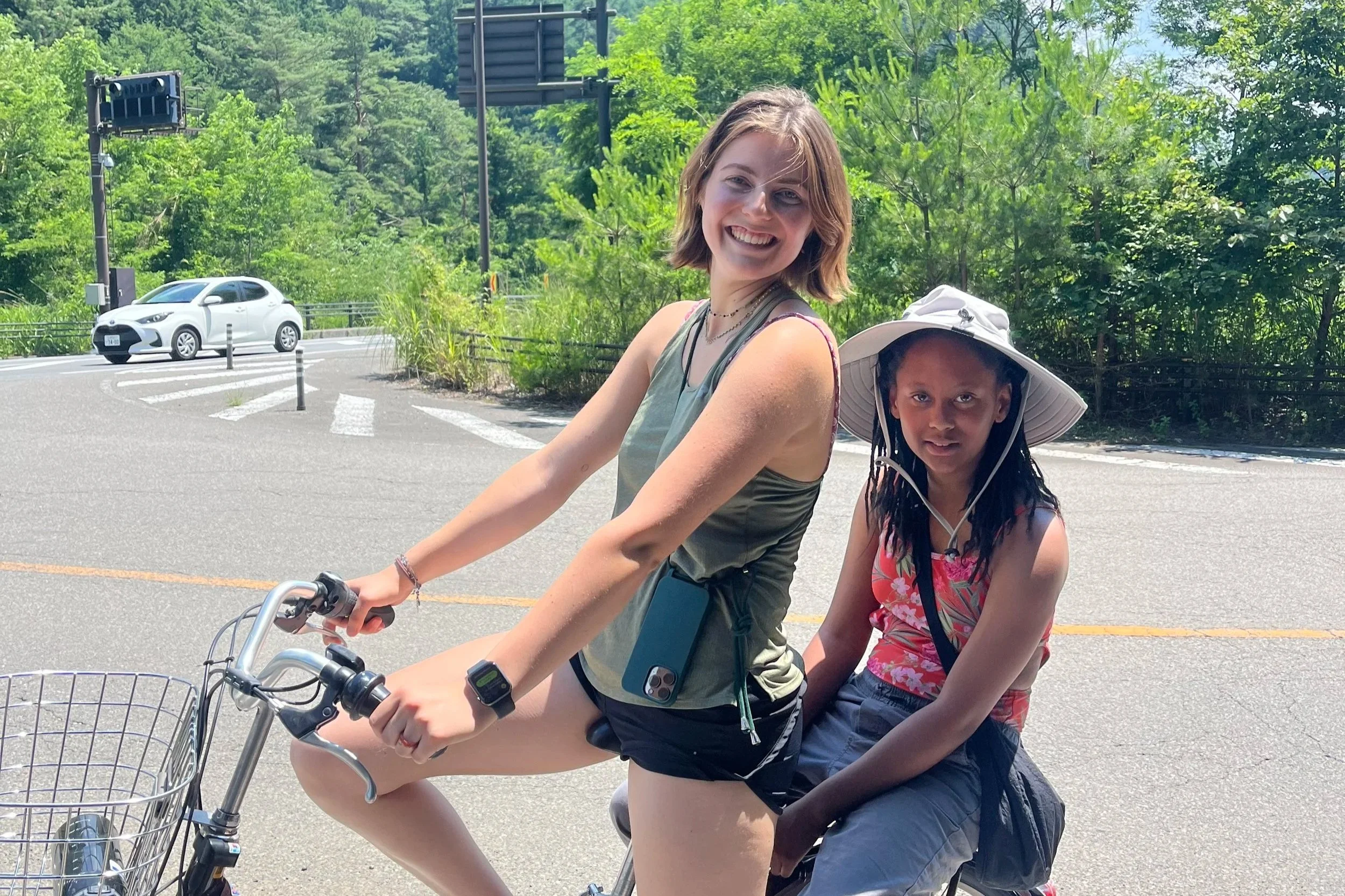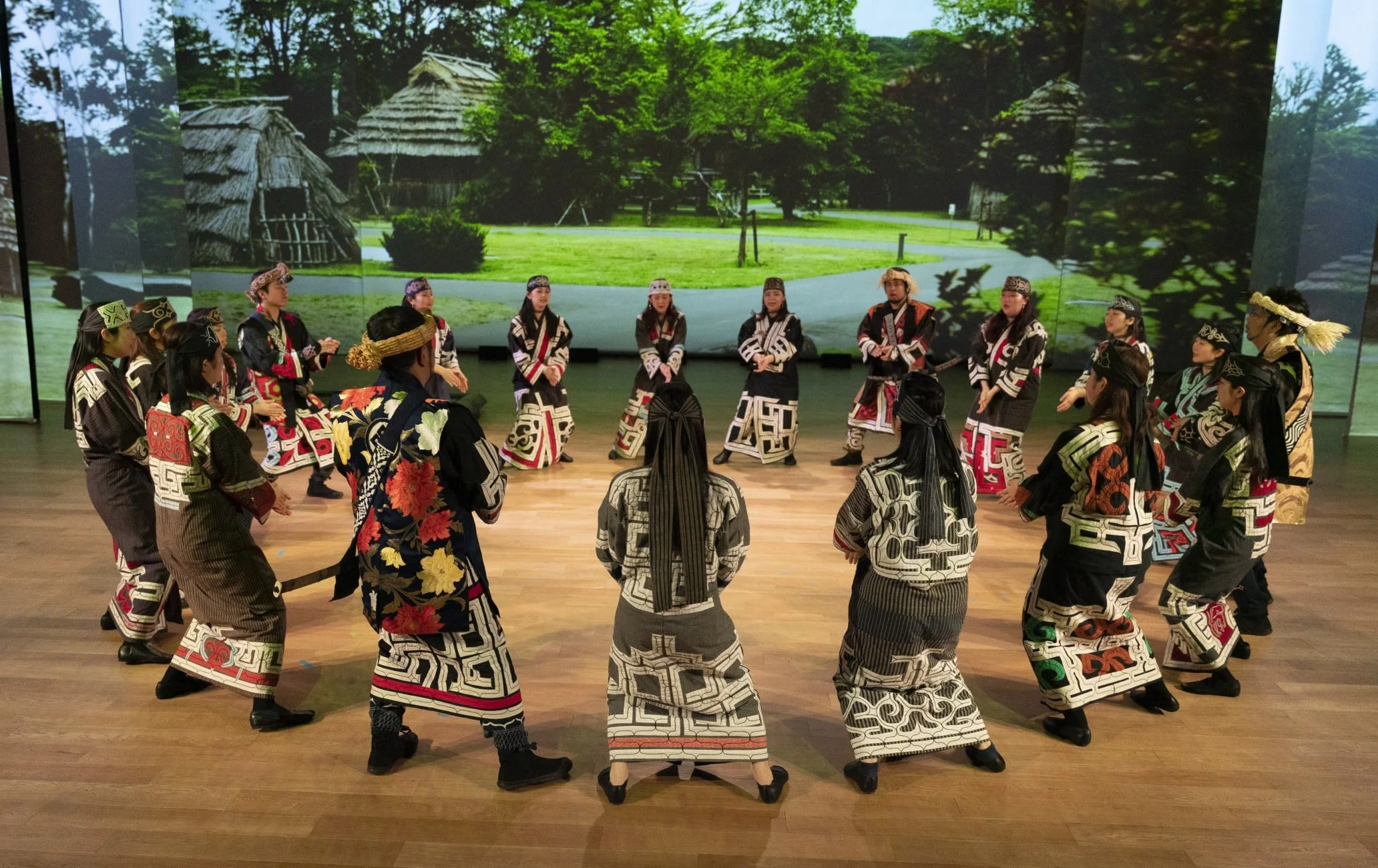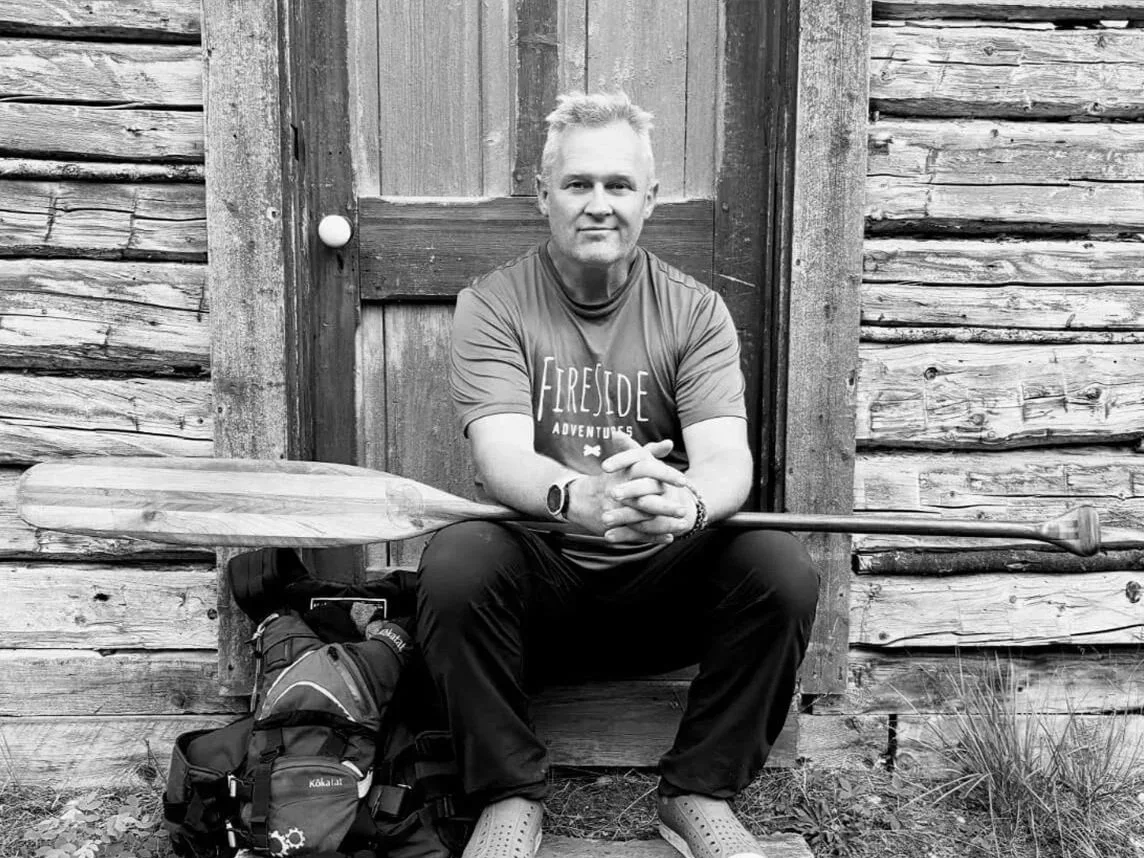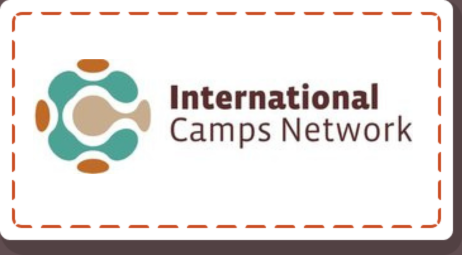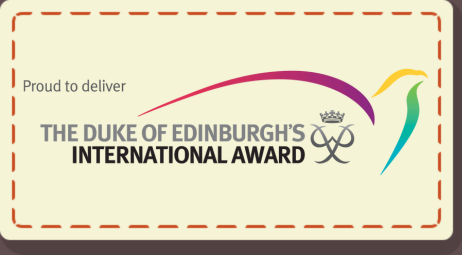Home > Youth Leadership Programs > World Bound: Japan
World Bound Japan
An epic adventure infusing Ainu Spirit, Samurai Wisdom & Climate Change Leadership Training for a better future.
“This Is Japan — Where Tradition Meets Tomorrow.”
Imagine standing 1,475ft above Tokyo, the largest city on Earth, gazing out from the world's third-tallest structure. Now picture yourself in a 1,300-year-old temple carved into a mountain, reflecting deeply to the rhythmic crackle of flames during an ancient Buddhist fire ritual. From breathtaking rice terrace vistas to the cutting-edge modernity of the Shinkansen bullet train, this Japanese travel adventure is like no other.
World Bound: Japan is a journey through Japan's rich past, vibrant present, and bright future to uncover a truly authentic Japanese experience. Unearth the gems of wisdom from each of these eras of Japan and acquire a priceless global perspective and the confidence to make thoughtful, informed decisions in your own life.
THIS IS A BIG, AWESOME DECISION! You are 15 minutes away from having your tough questions answered. Click here to book a quick Zoom or phone chat with Fireside Adventures’ leadership team (Willy & Barnsy).
DATES
Full Course (28-day): Jul 20–Aug 15, 2026 (departing July 19 from Vancouver)
1/2 Course (14-day) Jul 20–Aug 01 / Aug 02–14, 2026
AGES
13–18 (co-ed) / for 19 or older, check out Gen Z Travels
LOCATIONS
Tokyo • Hokkaido • Niigata • Kyoto • Shodoshima Island
PRICES (CAD): $9999.00 + GST
14 Day (1/2 Course) $5999.00 + GST
Non-refundable deposit: $1000 + GST
Reach out to us regarding scholarships
This trip includes:
– 2 pre-course zoom video check-ins
– 24-7 supervision by experienced bilingual guides
– Land transportation (other than JR rail lines)
– Dorm accommodation (hostels), community homestay, and tent camping
– Most meals
- 5 hours of basic Japanese lessons to support participants
- Tour of Tokyo and Kyoto, plus visiting three ancient regional areas (worlds)
- Domestic flight
- Connecting with Japanese climate change and cultural experts throughout the course
– Museum admissions and activities - see below for the locations we will visit
– Daily World Bound Cultural and Climate Change Leadership workshops
– Post-course follow-up
– Direct contact with our Duke of Edinburgh Award Centre
Does not include: Airfare, JR Rail Pass, and anything not mentioned above.
We can help book your flight.
More info: office@firesideadventures.ca
What makes this experience truly different?
You’re a welcome guest, not a tourist.
We travel with intention—guided by local partners and community hosts—so you experience Japan beyond the queues and selfie spots. Yes, we’ll visit a few iconic sites, but our focus is on neighbourhoods and regions that aren’t saturated by overtourism, where genuine conversation and cultural exchange can happen.
Authentic cultural access—led by knowledge keepers.
Participants meet and learn from Japanese cultural experts, educators, and community leaders—including time with an Ainu community (Japan’s Indigenous people). We approach each encounter with respect, protocols, and curiosity, prioritizing listening and relationship over consumption.
“Through the Lens” learning project.
Every participant captures short video clips and photos as field notes. By the end of the course, each person curates a 2–3 minute slideshow/story reel that weaves together culture, landscape, and personal insight—then presents it to the group with a short reflection.
Climate-smart travel in practice.
We explore how to travel differently: transit-first routes, low-impact choices, local food systems, and community-run initiatives. Along the way, we examine climate adaptation in Japanese cities and countryside—what’s working, what’s evolving, and how travellers can contribute rather than extract.
Urban to countryside. Ancient to modern.
From metropolitan energy to rural quiet, temple paths to maker studios, you’ll experience Japan’s layered identities. We connect Samurai codes of discipline and service to today’s “youth warriors” of creativity and climate action—translating history into modern leadership.
From knowledge to experience to reflection.
Each day follows a simple arc: learn → practice → reflect. Morning briefings give context; hands-on sessions and site visits make it real; evening debriefs help you turn experience into insight you can carry home.
Designed for depth—and growth.
Crowd-aware routing, small-group learning, and guided reflection create the conditions for genuine connection, skill development, and personal leadership. You won’t just see Japan—you’ll understand it, contribute thoughtfully, and leave changed.
Experiences you won’t want to miss:.
Visit the fortress of Goryokaku, where the last samurai made their final stand against Japan's modernizing forces
Explore the traditional charm of Asakusa, then climb the tallest building in Japan, and the third-tallest structure in the world, Tokyo Skytree
At Upopoy National Ainu Museum and Park, engage in cultural crafts such as wood carving, embroidery, and archery
Learn traditional methods of farming at an organic farm while exploring the Japanese culture of community and the initiative of Satoyama
Enter a realm where creativity flows all around you in an unforgettable encounter with the future of art in Tokyo's teamLab
Trek rice terraces and assist local farmers with agricultural duties, and cook a delicious farm-to-table meal
Witness a tuna demolition show and taste the freshest seafood Japan has to offer
Uncover traces of Japan's earliest history at the Hakodate Jomon Cultural Center
Experience 3 Michelin Star views from the Mt. Hakodate Ropeway
The Goma Fire Ritual. A moment of reflection in a 1300-year-old mountain temple.
Enjoy a traditional matcha tea ceremony and wear your own customized kimono
Connect with the sea and harvest the “King of Kelp”
Cycle past olive groves, coastal views, and taste your way to Shodoshima Islands best soy sauce breweries
Experience a life-changing 12-hour solo in the solitude of a hidden Japanese village. Disconnect from the world, deeply connect with yourself, and the surrounding nature.
Journey through the Three Worlds of Japan
World One: Tokyo and Niigata - Rural Heritage in Harmony With Nature Experience
World One begins in Tokyo where we lay the foundation for the World Bound Climate Change Curriculum from a Japanese perspective. A visit to the Tokyo Skytree provides sweeping views and an in-depth understanding of Japan's current state of climate and sustainability science.
From the busy streets of Shibuya to the historic temples of Asakusa, participants will experience the vibrant contrasts that shape life in Japan's capital. Then, in Niigata prefecture, we introduce the concept of kizuna, the enduring bond between people forged through mutual trust and respect. On an organic farm, discover traditional Satoyama practices and the hospitality of a community homestay. See how human well-being and nature conservation can go hand in hand.
Tokyo
Japan’s bustling capital, Tokyo, is a mesmerizing blend of modernity and tradition. Skyscrapers rise above ancient temples and peaceful gardens. In Asakusa, the historic heart of Tokyo, Senso-ji temple and lively market streets showcase the city's timeless charm.
Niigata
Japan's largest rice-producing prefecture. This great agricultural region leads the way in the Satoyama initiative, a vision for sustainable rural societies in harmony with nature. A harmony that contributes to human well-being and biodiversity conservation.
“The Samurai always has to rise and move on, because new challenges will come.”
World Two: Kyoto and Shodoshima Island - Samurai Spirit and Island Traditions Experience
Kyoto takes us back in time. Take part in a traditional matcha tea ceremony and walk the old streets in a kimono. Discover how Kyoto's samurai lived by Bushidō, moral principles guided by discipline, respect, and duty. These principles are exemplified on Shodoshima Island, an island that embodies the wisdom of ancient land use practices through Satoumi. Hear the powerful story of resilience from coastal communities who fought back against toxic industrial waste dumping on Teshima Island.
Kyoto
For over 1000 years, Kyoto was the imperial capital city of Japan. Home to esteemed historical sights, Kyoto is known for its profound serenity and timeless allure. It is steeped in rich history and tradition, once serving as a center for Samurai culture, where warriors upheld the code of bushido and shaped Japan's legacy of honor and discipline.
Shodoshima Island
A hidden gem with breathtaking views, ancient history, and real-life examples of climate solutions in action. Japan’s “Olive Island” and its inhabitants are a symbol of resilience and adaptability in the face of adversity.
World Three: Hokkaido - Indigenous and Ancient Origins of Japan Experience
In Hokkaido we’ll immerse ourselves in the rich spiritual world of Japan's ancient Jomon culture and the indigenous Ainu people. Connect with Ainu leaders and learn about the revitalization of their traditions, from cultural crafts to community practices like song and dance. Together we’ll reflect on how their deep ecological knowledge and lived experience with the land offer powerful lessons for addressing today's climate challenges.
Hokkaido
Hokkaido is a land that reflects the very origins of Japan. Thousands of years-old Jomon sites remain here, offering a glimpse into how people lived in harmony with nature. The culture of the indigenous Ainu people also endures, carrying forward a deep respect for the natural world. Hokkaido is a place that connects the past and the present, and inspires us to think about how we want to live in the future.
Our World Bound Climate & Culture Learning Outcomes (Japan)
Buckle up. We’re preparing a generation to adapt and lead in a changing climate—by going all-in on culture, place, and adventure. This isn’t doomscrolling; it’s doing. You’ll unplug, travel with intention, and level up your outdoor and leadership skills while learning directly from people and places across Japan.
We use the World Bound approach to adventure learning: place-based, outdoor-oriented modules that guide each day’s experiences—on trains and trails, in temples and markets, from Tokyo to Kyoto to Hokkaidō’s volcanic landscapes around Mt. Usu and Lake Tōya, and through living classrooms like Arashiyama’s bamboo forest, rice-terrace satoyama (“village–mountain” mosaics), and coastal wetlands. Everything is framed by our five World Bound Pillars, which show up in skills training, climate & cultural workshops, and service.
Pillar 1 — From Kami to Carbon: Culture × Climate in Japan
Intercultural lens: Explore where Western science and Japanese worldviews meet—from Shintō shrine forests (chinju no mori) and Ainu respect for kamuy (spirit of beings) to modern climate tech and disaster preparedness.
Urban ↔ Rural: Compare dense city districts (Tokyo rail life, compact living, resource efficiency) with quieter satoyama communities (rice paddies, canals, woodland edges) to see different adaptation strategies.
Timeless lessons: Connect mottainai (“no waste”), monozukuri (craftsmanship), and wabi-sabi (imperfect beauty) to today’s sustainability choices—repair, reuse, design that lasts.
Pillar 2 — Field Classrooms: Mountains, Lakes, Forests, Wetlands & Megacities
Wetlands & rice fields: Water cycles, migratory birds, and how rice agriculture ties food security to flood control.
Forests: Walk Arashiyama and shrine groves to study canopy, biodiversity, and cultural protection of trees.
Mountains & lakes: Hike Mt. Usu and study volcanic geology around Lake Tōya—risk, resilience, and hot-spring energy.
Cities as ecosystems: Read the “flows” of Tokyo and Kyoto—transit-first mobility, waste sorting, urban heat islands, pocket parks.
Skill focus: map reading, micro-navigation, observation journals, low-impact travel habits.
Pillar 3 — Hand-in-Hand: Service & Community Exchanges
Volunteer immersion: Multi-day support on a traditional organic farm in a small village—soil health, seed saving, and seasonal rhythms.
Ainu knowledge exchange: Learn about language, craft, and land relationships with community hosts; practice protocols and reciprocity.
Local makers & markets: Meet fishers, weavers, and shopkeepers; understand supply chains from harbor to konbini to home.
Outcome: real relationships, cultural safety, and a habit of giving back.
Pillar 4 — Live the Skills: Life, Social & Leadership through Culture
Outdoor & travel skills: rail/metro mastery, rural navigation, risk awareness, leave-no-trace city + trail etiquette.
Food systems: plan and cook simple, healthy meals using local ingredients; learn umami basics and waste-smart kitchens (hello, mottainai).
Mind & focus: Zen-inspired mindfulness and kizuna (bonds) for team cohesion; practice gaman (grit) and zanshin (calm focus) during challenges.
Language: practicing basic Japanese for respect and connection; greetings, thanks, and everyday phrases.
Through-the-Lens project: capture the journey in clips/photos and produce a 2–3 minute mini-doc that blends culture, climate insight, and your voice.
Pillar 5 — Keep the Flame: From Insight to Action
Solution studio: turn observations into a personal climate-action plan (home, school, community).
Networks & next steps: connect with local activists, educators, and the World Bound community for mentorship and projects.
Recognition: align your goals with the Duke of Edinburgh’s Award year-round; log service, skills, and expeditions with purpose.
Why does this feel different than other adventures?
You’re a welcome guest, not a tourist. We travel with community hosts and knowledge keepers.
You learn by doing. Trails, trains, farms, and markets are our classrooms.
You leave ready to lead. New skills, deeper empathy, and a clear plan you can carry home.
Unplug. Show up. Learn hard. Japan has layers—ancient and ultra-modern—that will change how you see climate, culture, and your own capacity to lead.
Meet your team:
Ami Nagata, Japan Cultural Exchange & Experiential Education Specialist
I was born and raised in Japan and moved to Canada in 2020. So far, I’ve explored 18 countries, driven by a deep passion for discovering new cultures and fostering meaningful cultural exchange. My professional experience includes working at an immigration agency, where I helped Japanese students pursue their dreams of studying in Canada. I believe it is essential for children and youth to explore the world—not only to learn new languages, but also to build social skills, leadership abilities, and a strong sense of identity. My motto, “一期一会” (Ichigo Ichie), or “once in a lifetime encounter”, reflects my desire to inspire more Japanese people to step into the world, embrace meaningful connections, and bring fresh energy and perspective to the global community.
Contact me at international@firesideadventures.ca
Jeff “Willy” Willis, Founder, CEO & Adventure Architect
Since 1991, I’ve been cooking up camps and expeditions across Canada, Japan, Germany, Colombia, Ecuador, Fiji, Yukon, Europe, and even the Arctic. My recipe? A big scoop of outdoor experiential education, a dash of youth and family work, and a whole lot of passion for environmental education and social justice. That mix became Fireside Adventures. Becoming a dad turned up the heat. When I realized my kids weren’t getting climate change education at school or camp, I built the World Bound Climate Change Courses series. Then I supercharged Fireside’s Explorer Series and added the Salty Express, Ocean to Mountains, and Earth Roots experiences for schools— because the next generation deserves both adventure and answers.
Sebastian Jenkins: Director of Global Programs & Cultural Exchange
A lifelong traveler and Fireside alumnus, Sebastian Jenkins brings over 15 years of experience in adventure travel, cultural immersion, and educational program design. His passion for connecting people through authentic, place-based experiences has taken him to more than 30 countries across six continents.Sebastian’s expertise bridges independent school programming, cross-cultural leadership, and experiential education. He first joined Fireside Adventures in 2006 as a participant in one of its earliest Alberta expeditions, later returning as a mentor and advisor. His journey continued through Fireside’s international youth leadership program in Germany (2008) and the Yukon Explorer canoe expedition (2021)—experiences that shaped his belief in the transformative power of outdoor and cultural learning.
Beyond Fireside, Sebastian has lived and worked abroad, including a formative year in Mombasa, Kenya, where he volunteered in rural communities, teaching English and helping build local schools. His global background in hospitality, education, and travel logistics allows him to craft experiences that balance adventure, safety, and cultural authenticity.Driven by curiosity and empathy, Sebastian believes that meaningful travel expands worldviews and builds leadership. His goal is to help young people and educators alike gain the skills, confidence, and global perspective needed to thrive in an interconnected world. Contact me at international@firesideadventures.ca
Taiki Ishikawa
As an educator, my commitment is to make learning fun, experiential, and relevant for all learners. I believe that educators must recognize the rapid shifts and changes in our world, which is why the development of a World Bound Japan course is incredibly important for both visitors to Japan and Japanese learners and families.
In my role, I try to inspire learners of all kinds through inquiry-based learning practices that focus on science, culture, and space. My “Space for All” passion-project for accessible space education flourished when I taught this to neurodiverse students. I strongly believe many will become world innovators in solving the problems caused by climate change. I am excited to explore "peace-making skill sets" from a Japanese perspective. It is crucial for youths to develop peacemaking skills and strategies, to navigate the conflicts that will arise due to compromised resources and environments caused by climate change.

